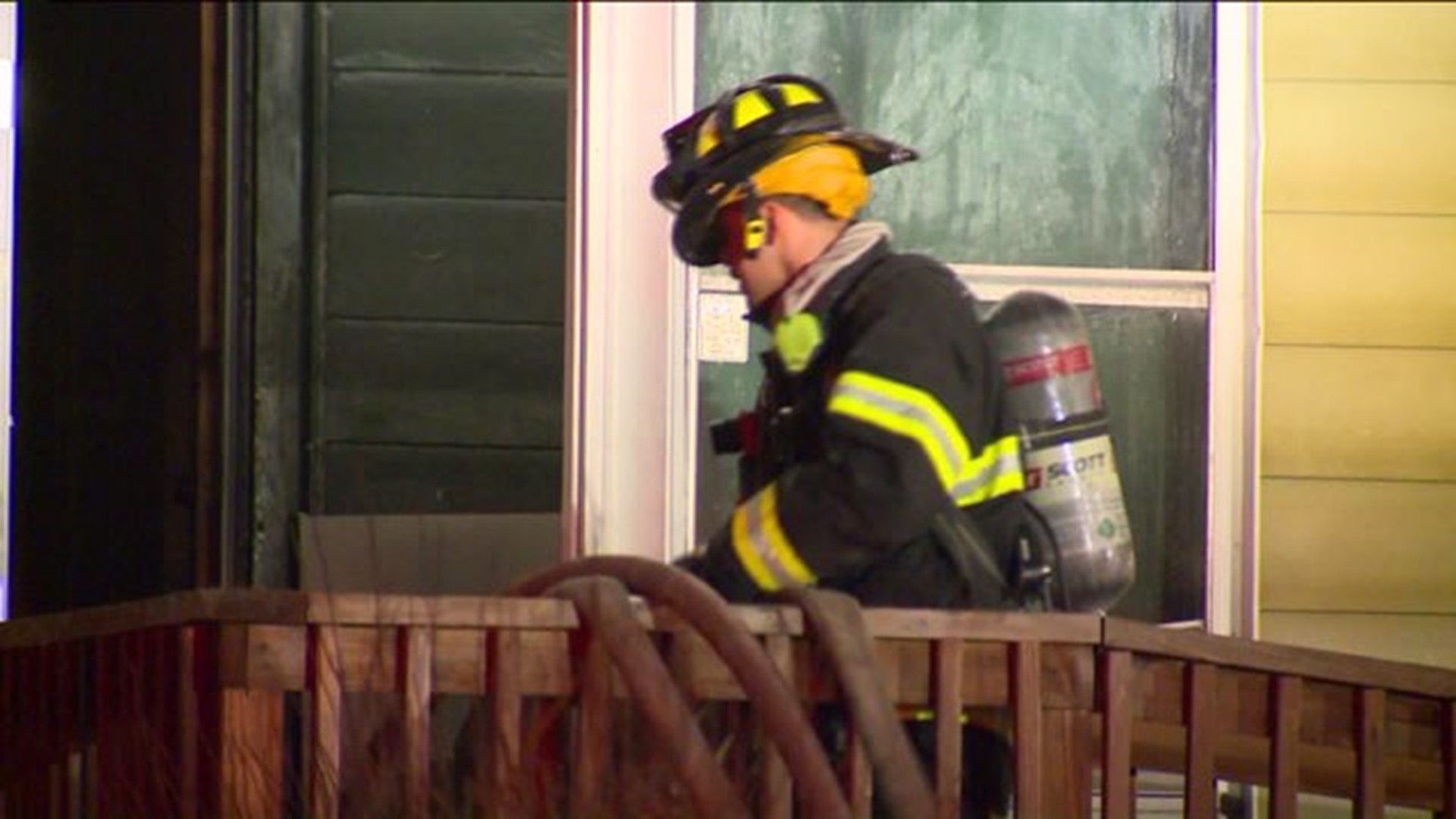HARTFORD--In recent weeks we've covered protests and rallies that firefighters from around the state, along with other union employees, have had in response to the significant number of layoffs coming, and the possibility of budget re-negotiations regarding pensions and health benefits. But it's that last part that's getting attention now.
Everyone recognizes that firefighters put their lives at risk on a daily basis when they run into burning buildings to save people, or rescue those in sticky situations. But some of the risks are less visible, though still extremely dangerous.
"The way firefighters work today is different than it was decades ago. I'm not taking anything away from our brothers and sisters from many decades ago, but nowadays there are toxins that are built in these different structures, into couches, into cars--that when they respond to these dangers, they don't know exactly what they're breathing in," explained Glenn Terlecki, the president of the Connecticut Police and Fire Union.
And it's more than that. We all are exposed to chemicals every day, from sofas to plastic bags to certain food containers. But firefighters have it much worse.
Terlecki said that a study that was done over several decades found that "firefighters in general have a higher exposure to a number of toxins, and their risk of cancer is much higher than any other profession."
A bill currently moving through the state Legislature is calling for expanded workers' compensation for both current firefighters, and those that retired long ago. They want the compensation expanded to cover diseases that arise from the harsh chemicals, smoke and other things that firefighters breathe in when responding to a call.
"This is something that could be lasting impacts for many, many years to come. Not just exposure on the scene, but they might not even feel the effects for many actual years," said Terlecki.
When asked about why current workers' compensation wasn't enough to cover these illnesses, Terlecki explained, "There is workers' compensation, but what this bill would do is provide extra for them. Again, this is also for retirees. So you may have actual members who retire from the fire department, but then not experience any symptoms for many years afterwards. And at that point, workers' comp would be very difficult to cover that."
And for those who worry about the system being taken advantage of, Terlecki had an explanation. "There's going to be a number of people on the review board to assess all the different situations that come up, all the cases, on a case-by-case basis." The review board will look at each person's firefighting history, things they were exposed to, amount of exposure, and other measures to determine if he or she qualifies for the expanded coverage.
Terlecki also commented on the similarities to the contentious bill that was permanently implemented in New York earlier this year giving similar protection to the 33,000 who responded to the World Trade Center in the immediate aftermath of 9/11 and are now suffering a variety of diseases.
"I think the movement from 9/11 set a precedent for everywhere, not just Connecticut. We're not the first state to follow up on this, this is something that's being introduced in other states as well. We're looking to have this done for our firefighters--not just our municipal, but our paid state and other volunteers as well," Terlecki said.

